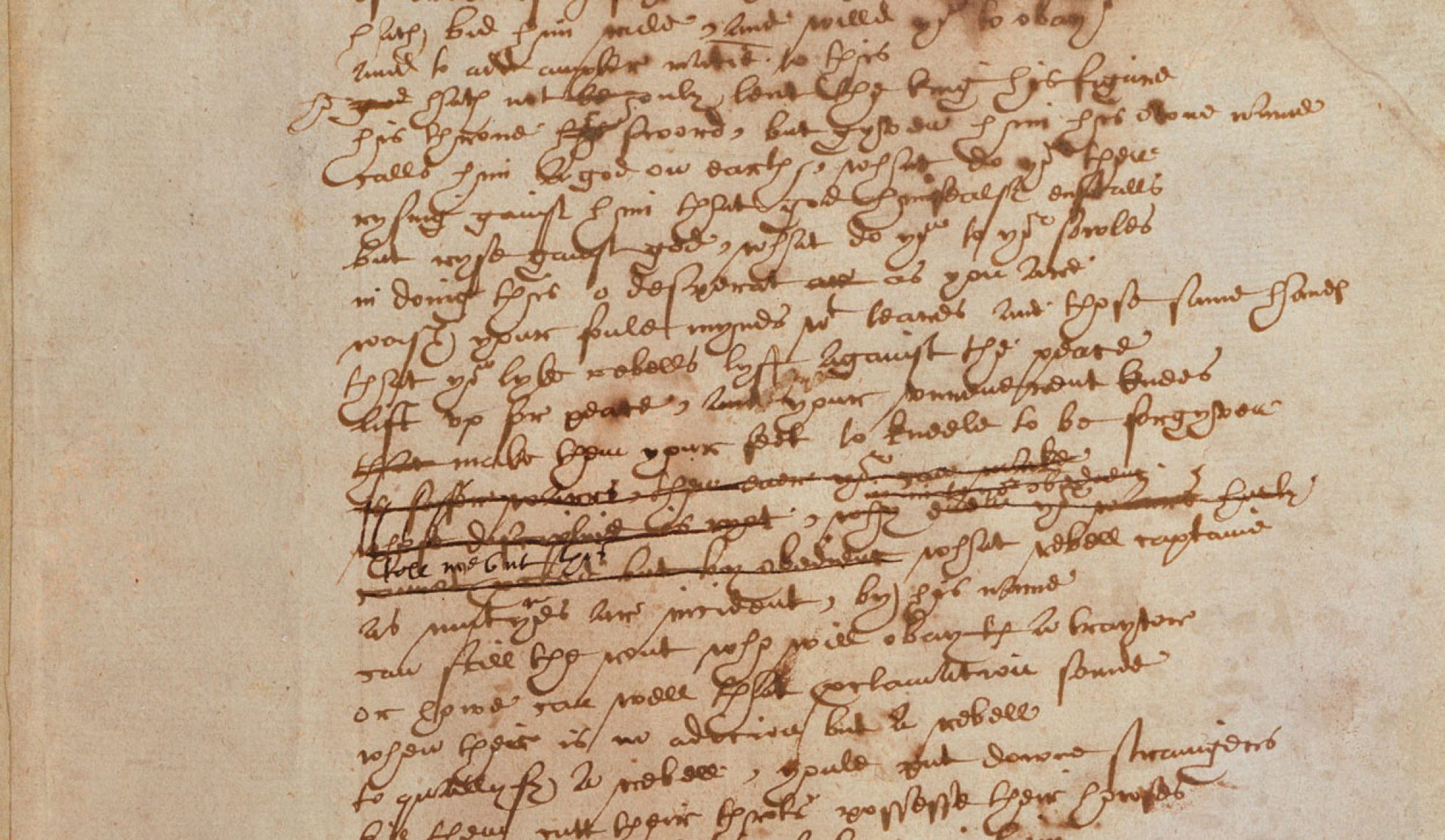To be or not to be—that is the question:
Whether ’tis nobler in the mind to suffer
The slings and arrows of outrageous fortune,
Or to take arms against a sea of troubles
And, by opposing, end them. To die, to sleep—
No more—and by a sleep to say we end
The heartache and the thousand natural shocks
That flesh is heir to—’tis a consummation
Devoutly to be wished. To die, to sleep—
To sleep, perchance to dream. Ay, there’s the rub,
For in that sleep of death what dreams may come,
When we have shuffled off this mortal coil,
Must give us pause. There’s the respect
That makes calamity of so long life.
For who would bear the whips and scorns of time,
Th’ oppressor’s wrong, the proud man’s contumely,
The pangs of despised love, the law’s delay,
The insolence of office, and the spurns
That patient merit of th’ unworthy takes,
When he himself might his quietus make
With a bare bodkin? Who would fardels bear,
To grunt and sweat under a weary life,
But that the dread of something after death,
The undiscovered country from whose bourn
No traveler returns, puzzles the will
And makes us rather bear those ills we have
Than fly to others that we know not of?
Thus conscience does make cowards of us all,
And thus the native hue of resolution
Is sicklied o’er with the pale cast of thought,
And enterprises of great pitch and moment
With this regard their currents turn awry
And lose the name of action.—Soft you now,
The fair Ophelia.—Nymph, in thy orisons
Be all my sins remembered.
(3.1.64 – 98)
I hesitated to offer up this too, too familiar passage for emphasis. Yet, because its familiarity makes it so easy to skim, the syntactic resources we read for today provide an opportunity to think about it in a new way. In class, I hope we’ll break these sentences down and try to determine what work is being done on a syntactic level—and why it matters. Here are some thoughts to get us started.
Mueller points out that it is often difficult to distinguish between the coordinate, disjunctive “or” and appositive, connective “or,” in which alternative names are given for the same referent (33). In this most famous of all Shakespearean sentences, “To be, or not to be?” it may seem simple to determine which of the two is relevant. Every high school student will tell you what this soliloquy is about—should Hamlet commit suicide, or shouldn’t he? There is no overlap between the two options, and no ambiguity. Yet Hamlet has already shown a perverse delight in linking words and phrases that ought to remain opposed. He calls Claudius is his “uncle-father” (2.2.400) and his mother, and directly following this speech he will tell Ophelia “I did love you once,” and then “I loved you not” (3.1.125, 129). In this soliloquy, Hamlet’s most seeming-simple question of course propels us into one of the English language’s most profound reflections on the painfully unknown relationship between life, death, and what comes after. Hamlet does not know whether the neat binary structuring his first question holds up in the face of such uncertainty, and it shows in the shape of his stunning, “running” sentences, with all their “twistings and turnings of the syntax [that] represent twistings and turnings of the mind” (Lanham 53 – 6), and all of their parenthetical qualification. Parataxis abounds here (To die, to sleep—/To sleep, perchance to dream), because Hamlet has no idea how to “rank” these kinds of action in Lanhamian fashion. Yet, it’s clear he’s thought about these questions quite a lot, and we’ve seen him at it for the better part of two acts. So, while I’ve tentatively labeled much of this soliloquy as a series of running sentences, how closely do these sentences resemble the periodic style? All of the periodic elements are here—suspension, parallelism, balance, climax, and virtuoso display. Is there anything significant about how Shakespeare makes the two forms look so similar? Getting back to a question raised last class, to whom is this virtuoso performance of thinking-in-action directed? I look forward to hearing your thoughts.
Mary
